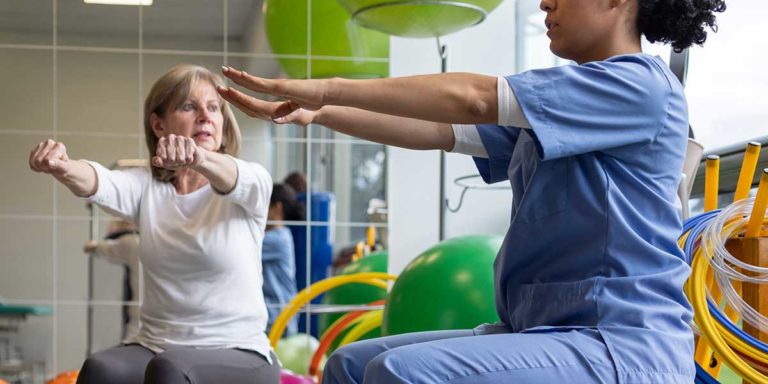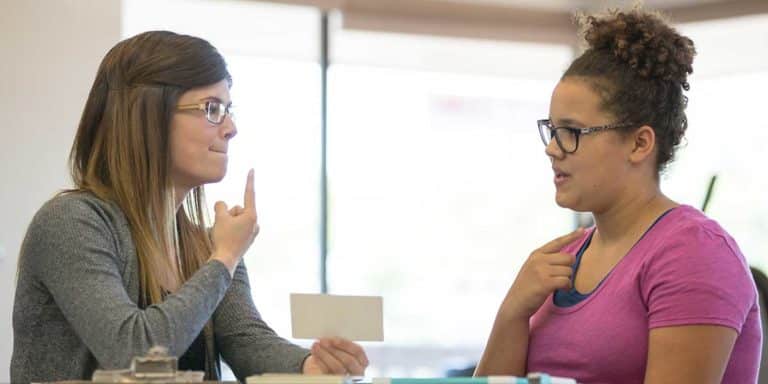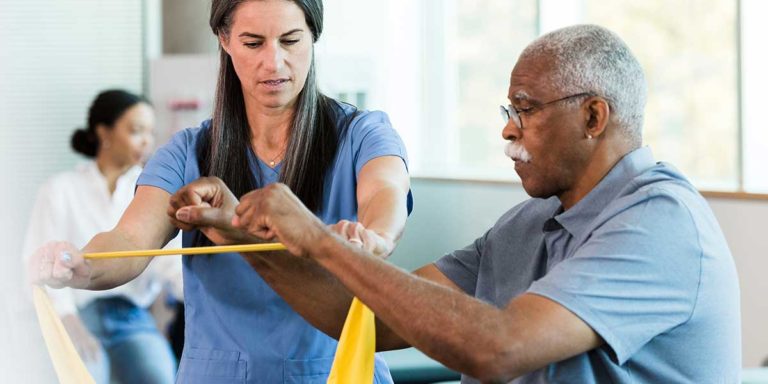Speech Therapy for Stroke Survivors
Stroke, a sudden interruption of blood flow to the brain, can have profound and life-altering effects on individuals. Among the challenges faced by stroke survivors, communication difficulties often take center stage. Speech and language impairments can significantly impact a person’s quality of life, affecting their ability to express thoughts, connect with others, and engage in daily activities. However, there is hope and help on the horizon – speech therapy emerges as a crucial tool in empowering independence for stroke survivors.
Understanding Speech Challenges After Stroke
When a stroke occurs, the part of the brain responsible for speech and language may be damaged, leading to aphasia – a condition that impairs the ability to understand, speak, read, or write. The severity of aphasia varies from person to person, with some experiencing mild difficulties while others may struggle with complete loss of communication.
The Role of Speech Therapy
Speech therapy plays a pivotal role in the rehabilitation process for stroke survivors with communication challenges. It is a specialized form of therapy that focuses on improving language skills, speech production, and overall communication abilities. The goal is not just to restore lost skills but also to enhance compensatory strategies and provide tools for effective communication in daily life.
Assessment and Individualized Plans
The journey begins with a thorough assessment by a speech-language pathologist (SLP). This evaluation helps identify the specific communication deficits and allows the SLP to tailor a personalized treatment plan. Each stroke survivor is unique, and so is their recovery journey.
Speech Exercises and Techniques
Speech therapy incorporates a variety of exercises and techniques to target specific speech and language goals. These may include articulation exercises to improve speech clarity, language drills to enhance vocabulary and comprehension, and cognitive-communication exercises to address memory and problem-solving skills.
Augmentative and Alternative Communication (AAC)
For those facing severe communication challenges, AAC becomes a valuable tool. This includes methods such as picture boards, electronic devices, or apps that allow individuals to express themselves when traditional speech is difficult.
Social Communication Skills
Beyond the technical aspects of speech, therapy also focuses on social communication skills. This involves practicing conversations, understanding social cues, and building confidence in various communication settings. The aim is to reintegrate stroke survivors into their social circles, fostering a sense of independence.
Family and Caregiver Involvement
Empowering independence is a collaborative effort. Speech therapy often involves educating and training family members and caregivers on how to support the stroke survivor’s communication goals. This creates a supportive environment that extends beyond therapy sessions.
Empowering Independence
Speech therapy goes beyond the immediate goal of improving speech and language skills. It is about restoring a sense of autonomy and independence to stroke survivors. As communication abilities improve, individuals regain the power to express their needs, share their thoughts, and actively participate in decision-making processes.
Regaining Confidence
The ability to communicate effectively has a direct impact on a person’s confidence. As stroke survivors make progress in speech therapy, they often experience a renewed sense of self-esteem and confidence. This newfound confidence extends to various aspects of their lives, enabling them to tackle challenges with a positive mindset.
Enhancing Quality of Life
Communication is a fundamental aspect of human connection. By addressing speech and language challenges, therapy helps stroke survivors reconnect with loved ones, friends, and the broader community. Improved communication enhances their overall quality of life, reducing feelings of isolation and loneliness.
Facilitating Independence in Daily Activities
Effective communication is essential for carrying out daily activities independently. Whether it’s expressing needs, understanding instructions, or engaging in social interactions, speech therapy equips stroke survivors with the skills needed to navigate the challenges of daily life autonomously.
Empowering independence for stroke survivors through speech therapy is a journey of resilience, collaboration, and transformation. As individuals work with dedicated speech-language pathologists, they not only regain lost communication skills but also rediscover their sense of self. The impact extends far beyond the therapy room, reaching into every facet of their lives, from personal relationships to daily activities.
For stroke survivors and their families, the path to independence may seem challenging, but with the right support and dedication, the transformative power of speech therapy opens doors to a future filled with communication, connection, and regained independence.
Contact Therapeutic Potential, Inc, to schedule an initial evaluation and to learn more about our speech therapy programs.







